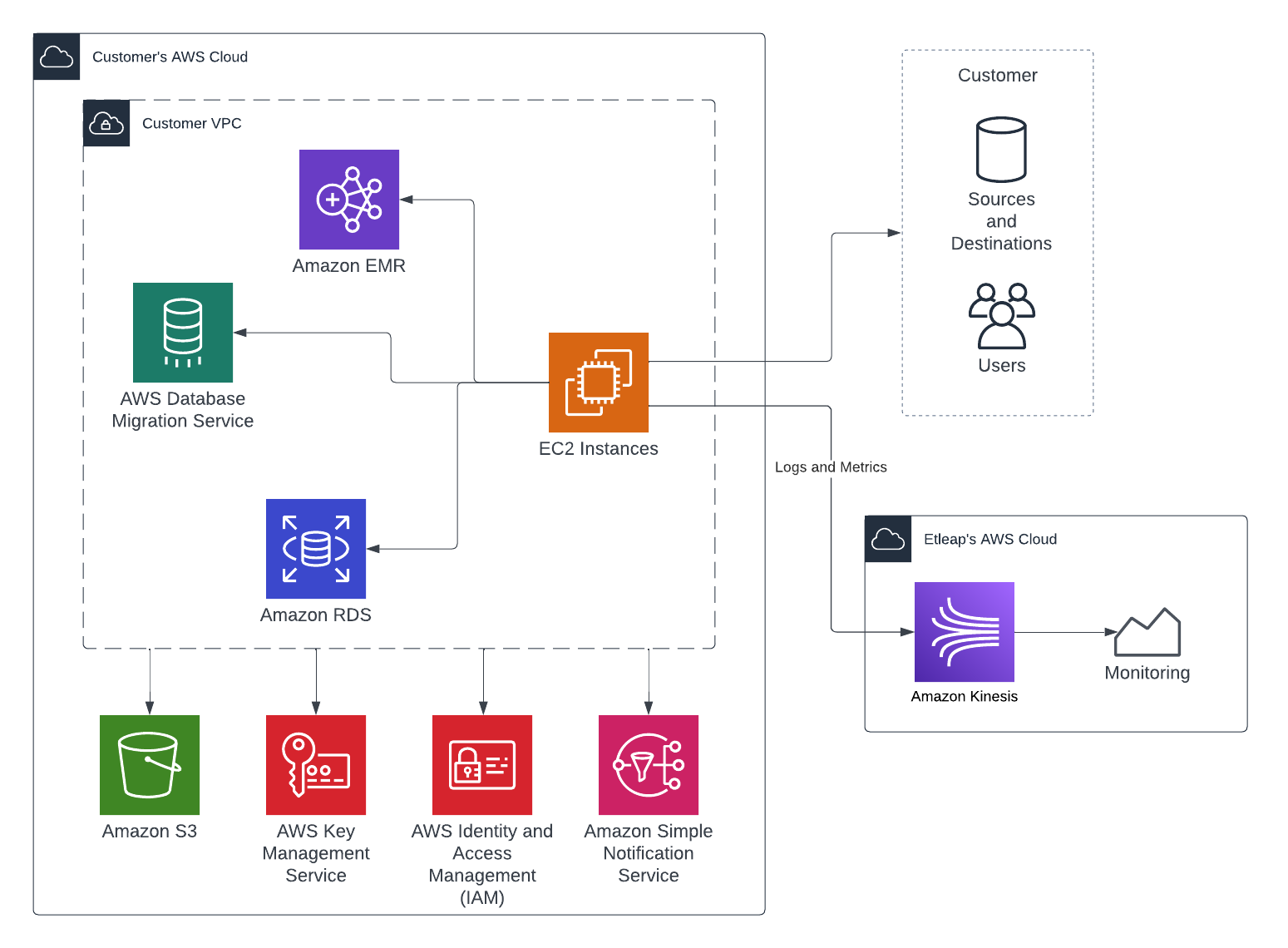Deployments Overview
You can deploy Etleap in two ways:
-
Standard: Your Etleap application is hosted by Etleap in a multi-tenant environment.
Standard deployment data flow -
Private: Your Etleap application is deployed in your AWS account (i.e., single-tenant environment).
Private deployment data flow
The key difference between the two deployments is in which AWS account is hosting your Etleap application. In a standard deployment, your pipelines utilize shared resources (i.e., multi-tenant) hosted in Etleap’s AWS account. In a private deployment, your pipelines utilize only your organization’s resources (i.e., single-tenant) hosted within your AWS account. For more details on private deployment logs and metrics, go here.
In both deployment options, your data is only stored in your sources, destinations, and your intermediate S3 bucket. Every Etleap deployment utilizes an S3 intermediate bucket to stage data and metadata for your pipelines.
Private Deployment Architecture

Etleap leverages the following AWS services:
- EC2 Instances host the web interface and main Etleap application.
- Amazon RDS stores user and pipeline activity metadata.
- Amazon EMR performs data extractions and transformations at any scale.
- Amazon Kinesis sends logs and metrics to Etleap’s Support and Ops teams when enabled.
- AWS Database Migration Service (optional) performs extractions for CDC-enabled sources.
- Amazon S3 stores intermediate extraction and transformation data, as well as metadata.
- AWS Key Management Service provides the secrets required to secure your applications and data.
- AWS Identity and Access Management provisions the minimum required permissions for the infrastructure.
- Amazon Simple Notification Service (optional) provides infrastructure for event-driven pipelines.

